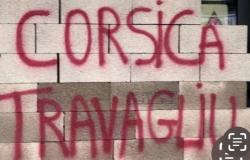“Raids by the Israeli enemy” caused the deaths of 40 people in southern Lebanon, 25 in the Baalbek-Hermel region (east), 23 in the Bekaa (east) and 4 in the Mount Lebanon region ( east-central), according to the ministry, and a total of 153 people were injured.
Israeli strikes in Lebanon killed 92 people and injured 153 others on Thursday, the Lebanese Health Ministry said.
“Raids by the Israeli enemy” caused the deaths of 40 people in southern Lebanon, 25 in the Baalbek-Hermel region (east), 23 in the Bekaa (east) and 4 in the Mount Lebanon region ( east-central), according to the ministry, and a total of 153 people were injured.
Israel has vowed to fight Lebanon’s Hezbollah “until victory”, rejecting an international call for a 21-day ceasefire as massive airstrikes continue in eastern and southern Lebanon.
For the fourth consecutive day, the Israeli army carried out dozens of strikes targeting Hezbollah, which opened a front against Israel on October 8, 2023 in support of Palestinian Hamas, promising to continue its attacks “until the end of the war.” aggression in Gaza.
The Israeli army announced “precise strikes” on the Lebanese capital, claiming to have killed the head of Hezbollah’s drone unit, Mohammed Srour. The Shiite movement confirmed this death in the evening.
Israel said it attacked 75 Hezbollah military objectives in southern and eastern Lebanon on Thursday, claiming in the evening to carry out new strikes against the pro-Iranian formation in southern Lebanon.
The Israeli army reported dozens of “projectiles” fired Thursday from Lebanon towards Israel, with Hezbollah indicating for its part having fired around a hundred rockets at the towns of Safed and Haifa in northern Israel.
“Crush Hezbollah”
Israeli bombings, which have killed more than 700 people since Monday, including many civilians, have thrown more than 90,000 people onto the roads in Lebanon, according to the UN. More than 31,000 of them have entered Syria, according to Beirut.
Hassan Slim, a Lebanese man, left with his elderly mother, seeking refuge in Syria, a country in pieces after years of civil war. “We avoided Syria because of the war, but today the war is upon us,” explains the young unemployed 24-year-old.
Faced with this escalation, France and the United States, joined by Arab and Western countries, called on Wednesday for an “immediate 21-day ceasefire” to “give diplomacy a chance.”
But Israeli Prime Minister Benjamin Netanyahu said the army would continue its fight against Hezbollah “with all necessary force.”
His Foreign Minister, Israel Katz, said there would be “no ceasefire in the north” and that the fight against Hezbollah would continue “until victory.”
Two far-right ministers Bezalel Smotrich and Itamar Ben Gvir also rejected the idea of a ceasefire. “The (military campaign in the) north must end in only one way: the crushing of Hezbollah,” according to Bezalel Smotrich.
Itamar Ben Gvir threatened to boycott government work if a temporary ceasefire is concluded in Lebanon. Washington assured that the call for a ceasefire was launched “in coordination” with Israel.
French President Emmanuel Macron said it would be “a mistake” on the part of Benjamin Netanyahu to refuse the proposed ceasefire in Lebanon and that he would take “responsibility” for a regional escalation, saying that the proposal had been “prepared, negotiated with the (Israeli) Prime Minister and his teams, both by the Americans and by ourselves”.
“Devastating”
The American Minister of Defense, Lloyd Austin, warned of a “total war” which “would be devastating for Israel and Lebanon”, estimating that a ceasefire in Lebanon could make it possible to conclude a truce agreement in Gaza.
The Israeli Defense Ministry announced a new US military aid package, worth $8.7 billion “in support of Israel’s ongoing military effort.”
Israeli army chief of staff General Herzi Halevi on Wednesday asked soldiers to prepare for a possible ground offensive in Lebanon.
At war with Palestinian Hamas in the Gaza Strip since October 7, 2023, Israel announced in mid-September that it had moved the “center of gravity” of its operations to the north of the country, to allow the return of tens of thousands of displaced residents, in this border region of Lebanon targeted by Hezbollah rocket fire for almost a year.
Cross-border fire between the Israeli army and Hezbollah has increased in intensity since the wave of deadly explosions of the Lebanese formation’s transmission devices, attributed to Israel, on September 17 and 18 in Lebanon, then an Israeli strike on September 20 on the southern suburbs of Beirut, which decapitated the movement’s elite unit.
In almost a year, this violence has caused the death of 1,540 people in Lebanon, the Lebanese authorities announced Thursday.
“Anguish”
The Israeli army claimed to have struck “more than 2,000 targets” of Hezbollah since Monday. According to the government, 9,360 rockets and missiles have been fired at Israel in nearly a year.
“It’s a real anxiety. We don’t know what will happen, if the rockets will come closer, if they will reach Haifa,” testified Fida Khoury, a 28-year-old resident.
Meanwhile, Israel continues its offensive in the Gaza Strip where Civil Defense announced Thursday the death of 15 people in an Israeli strike against a school welcoming displaced people in the Jabaliya camp (north).
Israeli offensive in Lebanon: the specter of a “total war”
The war was sparked by Hamas’ unprecedented attack on Israel on October 7, 2023, which resulted in the deaths of 1,205 people, mostly civilians, according to an AFP count based on official Israeli figures including the hostages. dead or killed in Gaza.
Of 251 people kidnapped, 97 are still held in Gaza, 33 of whom are declared dead by the army.
In retaliation, Israel promised to destroy Hamas, in power in Gaza since 2007 and which it considers a terrorist organization along with the United States and the European Union.
Its military offensive in Gaza has so far left 41,534 dead, mostly civilians, according to data from the Hamas government’s Ministry of Health, deemed reliable by the UN, and has caused a humanitarian disaster there.





